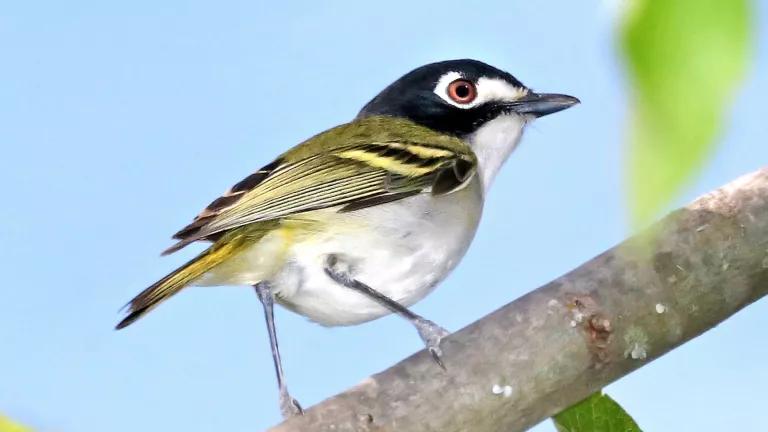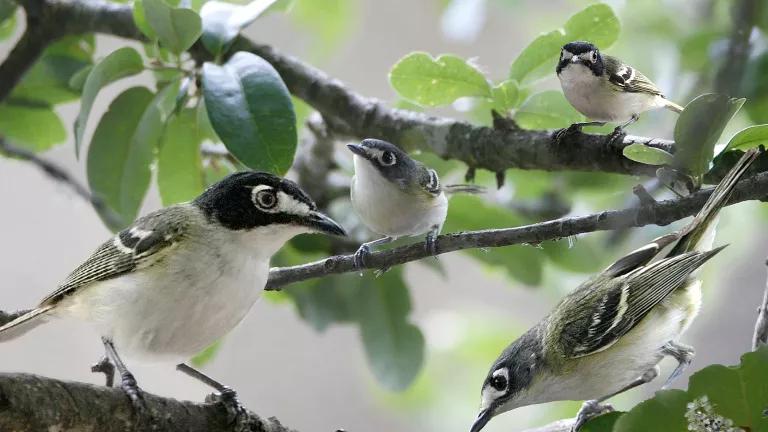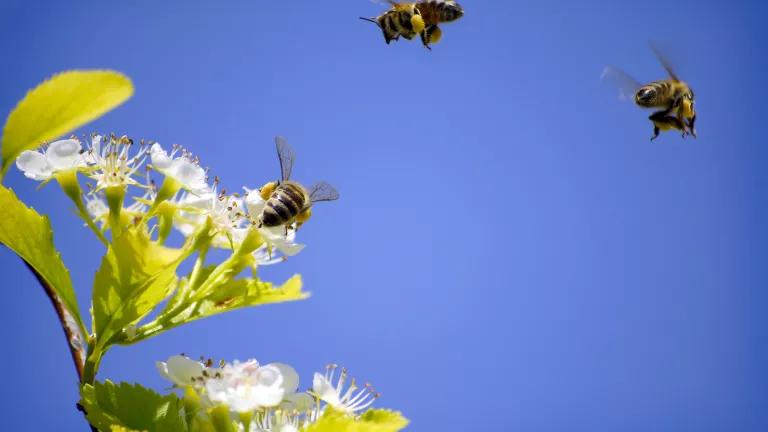NRDC v. E. Scott Pruitt et al. (Neonic Pesticides)
Case Status
ActiveLast Update

The endangered black-capped vireo, which is at risk from neonic pesticides
In the past 25 years, the U.S. Environmental Protection Agency (EPA) has approved thousands of neonicotinoid (neonic) pesticides, a class of widely applied, neurotoxic insecticides. A massive body of evidence shows that neonics are a leading cause of bee die-offs seen around the world in recent decades, and research increasingly implicates neonics in bird declines and the collapse of aquatic ecosystems. They are disastrous for nearly all wildlife, but threatened and endangered species, which typically suffer from a number of existential threats, often face the greatest consequences from the use of neonics and other pesticides.
In approving neonic pesticides, the EPA violated the Endangered Species Act. The agency was required to consult with the U.S. Fish & Wildlife Service and National Marine Fisheries Service before it approved these toxic pesticides to evaluate their impact on threatened and endangered species and their habitats. The EPA has never complied.
In response, on October 2, 2017, NRDC filed a lawsuit challenging the registrations of dozens of products containing one of three wildlife-harming neonic pesticides—acetamiprid, dinotefuran, and imidacloprid—with the aim of forcing the agency to evaluate the impacts that pesticides have on imperiled species. The EPA and the pesticide industry attempted to dismiss the lawsuit, but on September 25, 2019, a federal court denied the motion, allowing the case to move forward.
We entered into a pair of settlements with the EPA in January 2021 and March 2022 that required the agency to initiate consultation on the effects of imidacloprid by June of 2022, and acetamiprid and dinotefuran by October 2024. If the EPA determines that these insecticides are likely to harm endangered or threatened species, the settlement requires the EPA to begin the formal consultation process required under the Endangered Species Act. That process should result in significant restrictions on use of these products to protect imperiled species and their habitats.
These settlements are already paying dividends. In September 2021, the EPA issued a determination that imidacloprid is likely to harm nearly 80 percent of listed species, triggering the formal consultation process. The EPA then predicted in May of 2023 that imidacloprid use will likely push nearly 200 species closer to extinction. We expect the EPA to make similar findings when it issues its assessments of acetamiprid and dinotefuran in October 2024, and that the agency will take action to ensure neonics do not further imperil these precious species.

Urge the EPA to ban neonics—and save our pollinators and the future of our food supply!
Case Documents
Complaint for injunctive and declaratory relief (PDF) Partial settlement agreement (PDF) Stipulated settlement agreement (PDF)Related Content

EPA: Neonic Likely Harms Nearly 80% of Listed Species

Neonic Pesticides Are Killing Endangered Bees and Butterflies—but the EPA Keeps Approving Them Anyway

UPDATED: EPA Can't Ignore Neonics’ Impacts on Imperiled Species
